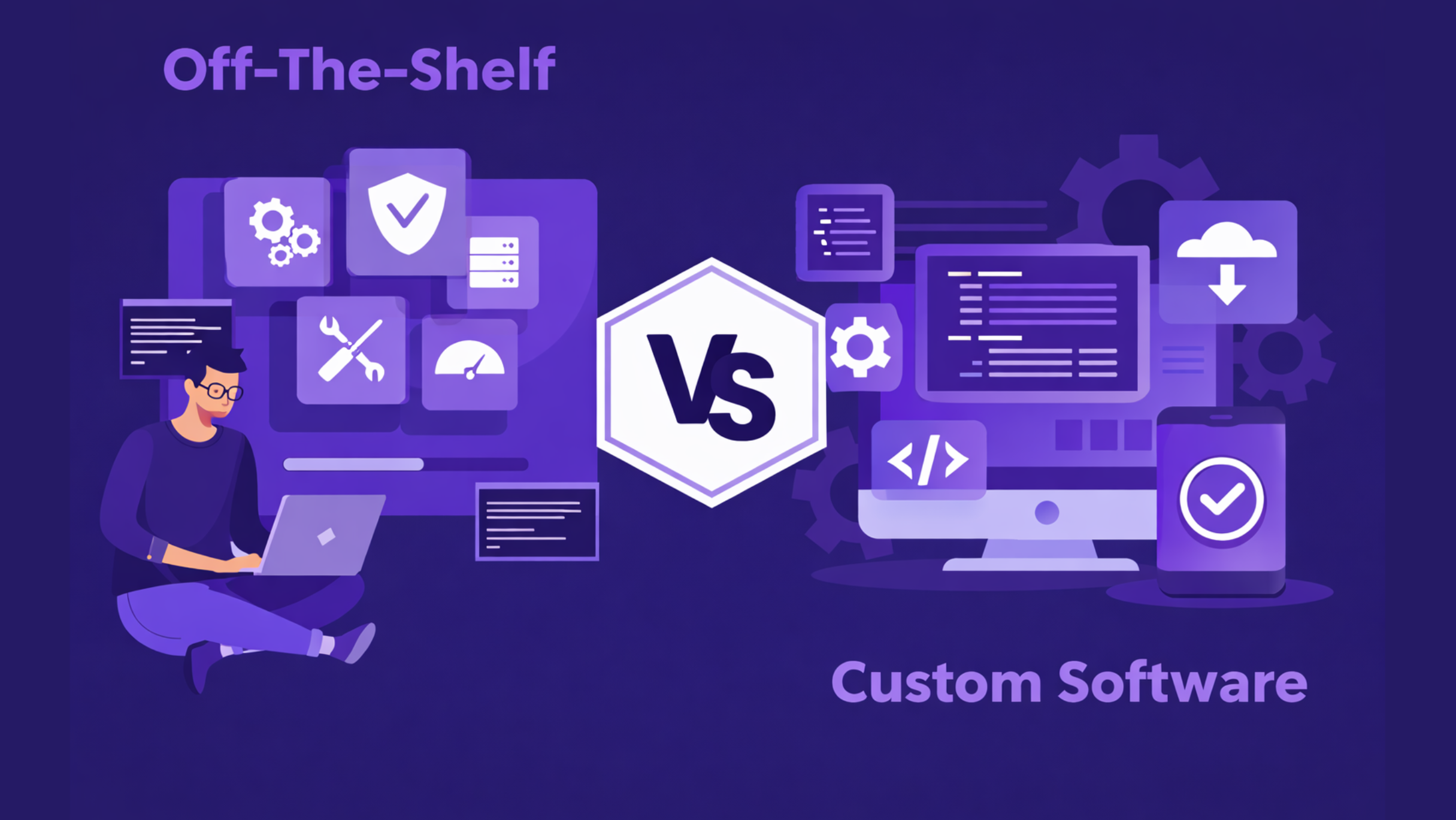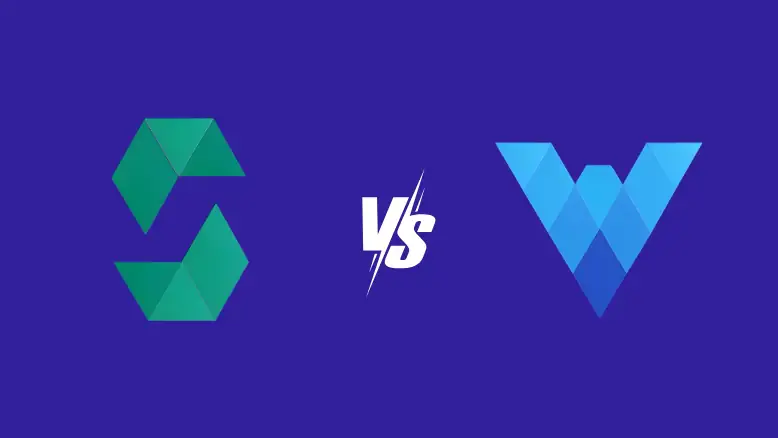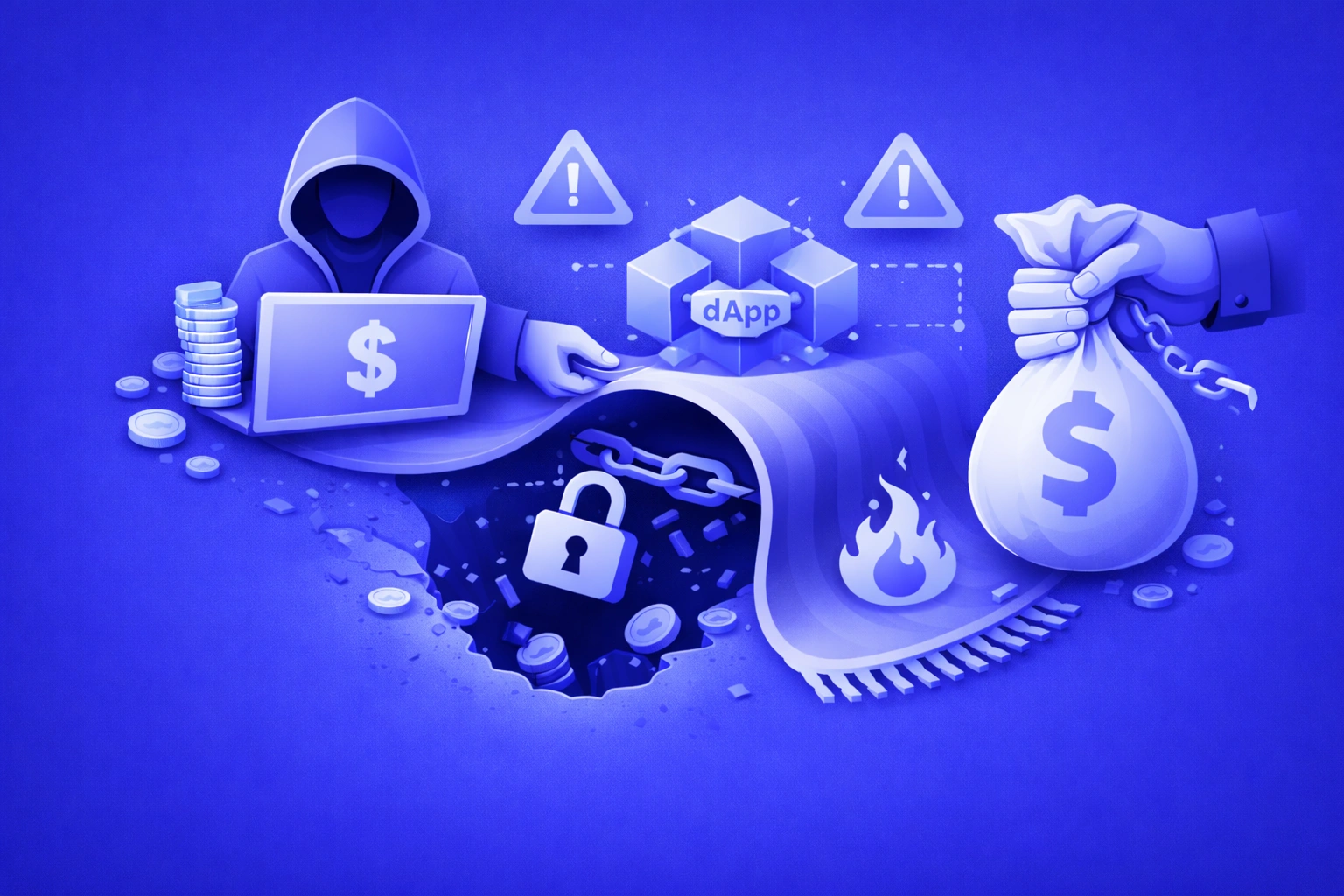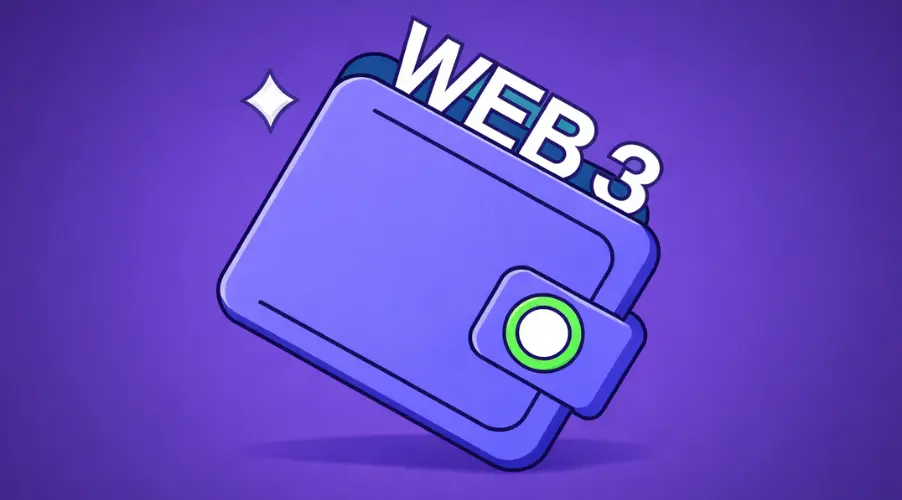Key Takeaways
- Custom vs Off the Shelf decisions fundamentally impact vendor selection accuracy, operational efficiency, and long-term competitive advantage for enterprises.
- Off the shelf solutions offer faster deployment within weeks while custom platforms require six to eighteen months for complete implementation.
- Total cost of ownership analysis over five years often reveals Custom vs Off the Shelf solutions become more economical for large enterprises managing complex vendor ecosystems.
- Vendor lock-in risks with commercial platforms can restrict future flexibility and increase switching costs by 40-60% compared to custom solutions.
- Regulatory compliance requirements in USA, UK, UAE, and Canada often necessitate Custom vs Off the Shelf solutions for audit trail and governance capabilities.
- Data integration challenges across vendor selection workflows represent the primary driver for organizations choosing custom platform architectures.
- AI-driven vendor evaluation capabilities are increasingly influencing build vs buy decisions as machine learning integration requirements grow more sophisticated.
- Modular architecture approaches enable organizations to balance custom functionality with accelerated time-to-value through component-based building strategies.
- Security and compliance advantages vary significantly based on organizational data sensitivity requirements and industry-specific regulatory frameworks.
- Organizational maturity level serves as the most reliable predictor for successful Custom vs Off the Shelf vendor selection platform implementation outcomes.
Strategic Implications of Custom vs Off-the-Shelf Vendor Platforms
The Custom vs Off the Shelf decision for vendor selection platforms represents one of the most consequential technology choices enterprises face today. Blockchain Technology innovations and digital transformation pressures have intensified the need for sophisticated vendor evaluation capabilities that align with unique organizational requirements. This strategic choice impacts everything from procurement efficiency to supplier relationship quality and ultimately affects bottom-line performance.
Our agency has guided enterprises across the USA, UK, UAE, and Canada through this critical decision for over eight years. We have witnessed organizations thrive with Custom vs Off the Shelf solutions perfectly aligned to their workflows and others succeed with well-configured commercial platforms. The key insight is that neither approach is universally superior. Success depends on matching the solution type to organizational context, technical requirements, and strategic objectives.
Understanding the strategic implications requires examining factors beyond initial cost and deployment timelines. Long-term competitive positioning, data ownership, integration flexibility, and scalability potential all factor into what constitutes the optimal choice for any specific organization pursuing vendor selection excellence.
When Custom-Built Solutions Deliver Measurable Vendor Risk Reduction
Custom-built vendor selection platforms excel when organizations require specialized risk assessment methodologies that commercial solutions cannot accommodate. The Custom vs Off the Shelf analysis shifts decisively toward Custom vs Off the Shelf when vendor risk profiles involve proprietary scoring algorithms, industry-specific compliance requirements, or integration with internal risk management systems that demand deep architectural access.
A major energy company we worked with in the UAE required vendor risk assessment incorporating geopolitical factors, environmental compliance metrics, and real-time financial stability indicators. No commercial platform offered the necessary data integration depth or scoring flexibility. The custom solution reduced vendor-related incidents by 45% within the first year while providing complete audit trail visibility for regulatory reporting.
Measurable risk reduction through custom platforms stems from the ability to encode organizational knowledge directly into system logic. Institutional expertise about vendor categories, regional considerations, and historical performance patterns can inform automated evaluations in ways that generic commercial algorithms cannot replicate.
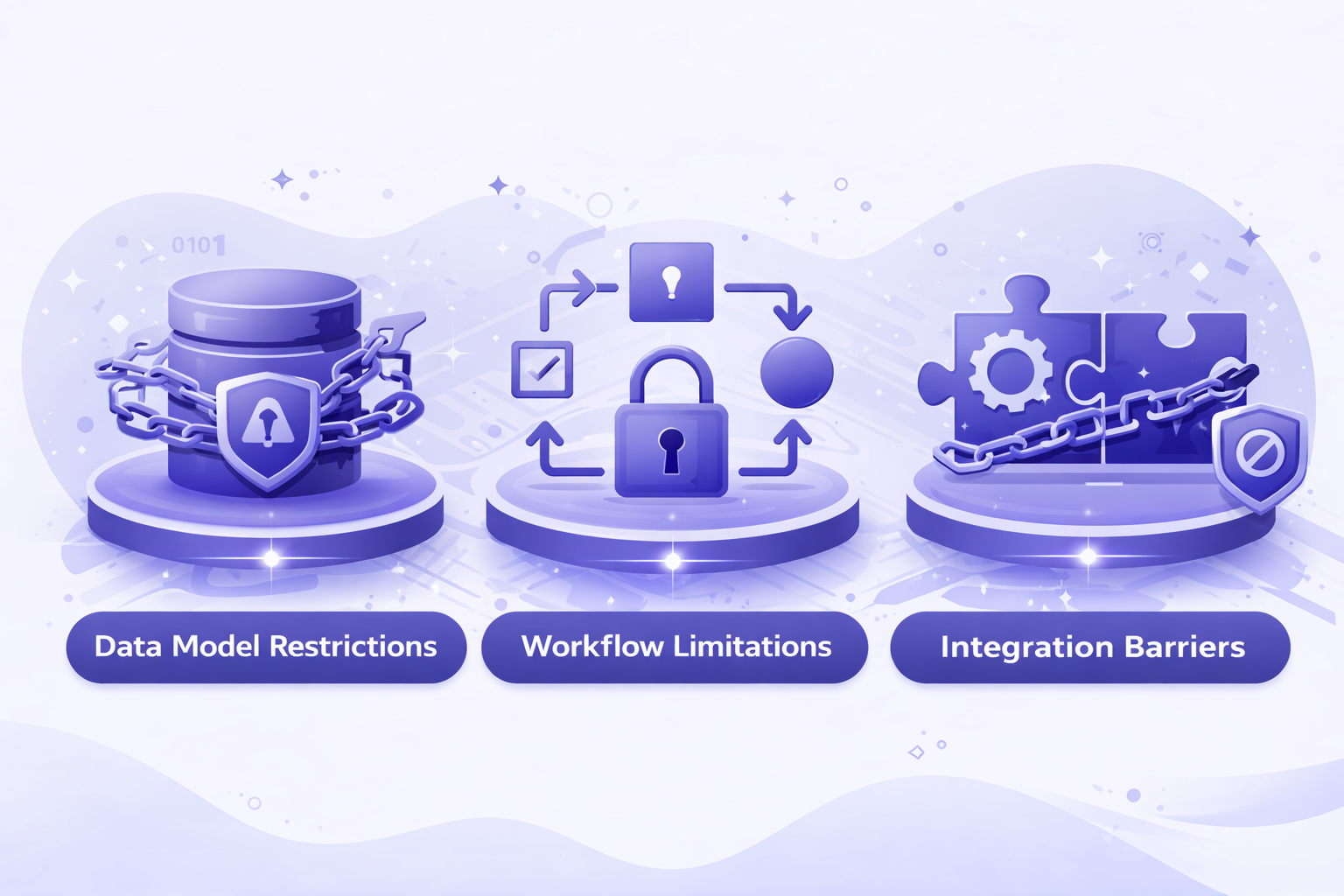 Hidden Constraints of Off-the-Shelf Tools in Multi-Vendor Ecosystems
Hidden Constraints of Off-the-Shelf Tools in Multi-Vendor Ecosystems
Commercial platforms impose structural limitations that become apparent only after implementation in complex vendor environments.
Data Model Restrictions
- Fixed entity relationships limit flexibility
- Custom field limitations constrain data capture
- Hierarchical structures may not match reality
- Historical data migration often incomplete
Workflow Limitations
- Approval hierarchies often oversimplified
- Conditional logic capabilities restricted
- Exception handling requires workarounds
- Parallel processing limitations exist
Integration Barriers
- API rate limits impact real-time sync
- Pre-built connectors lack depth
- Custom integrations require premium tiers
- Data transformation options limited
Total Cost of Ownership Analysis Beyond Licensing and Building
Understanding the complete financial picture of Custom vs Off the Shelf requires examining costs that extend far beyond initial investment. Hidden expenses accumulate over time and often reverse initial cost assumptions that favored commercial platforms.[1]
| Cost Category | Custom Solution | Off the Shelf |
|---|---|---|
| Initial Investment | $200K – $2M (one-time) | $50K – $500K (annual) |
| Year 1-3 Total | $300K – $2.5M | $150K – $1.5M |
| Year 4-7 Total | $100K – $400K | $200K – $2M |
| Customization Costs | Included in build | $50K – $300K additional |
| 7-Year TCO | $400K – $2.9M | $400K – $3.8M |
Scalability Trade-Offs in Custom and Prebuilt Vendor Selection Systems
Scalability considerations in the Custom vs Off the Shelf analysis extend beyond simple user count or data volume metrics. True scalability encompasses functional expansion, geographic deployment, and adaptation to evolving vendor selection methodologies. Each approach presents distinct trade-offs that organizations must evaluate against growth projections.
Off the shelf platforms typically scale efficiently along predefined dimensions. Adding users, processing more transactions, and expanding storage generally work smoothly within vendor infrastructure. However, scaling functional capabilities often hits walls defined by product roadmaps controlled by the vendor rather than customer needs.
Custom solutions require intentional architecture decisions to ensure scalability but provide unlimited expansion potential when properly designed. Organizations across the USA and UK with aggressive growth plans often prefer custom platforms that can scale functionally alongside business expansion without artificial constraints.
Data Integration Challenges Across Vendor Selection Workflows
Data integration represents the most frequently cited pain point driving organizations toward custom vendor selection platforms. Enterprise environments typically involve dozens of systems that must share vendor data, from ERP and financial systems to contract management and compliance platforms. The Custom vs Off the Shelf decision often hinges on integration requirements complexity.
Commercial platforms advertise integration capabilities through pre-built connectors and API access. However, deep integration involving bi-directional data synchronization, complex transformation logic, and real-time event processing often exceeds what these standard connectors provide. Organizations discover that achieving true integration requires significant additional investment.
Custom platforms designed with integration-first architecture enable seamless data flow across vendor selection workflows. Direct database access, custom API designs, and purpose-built middleware create unified vendor data ecosystems that commercial platforms struggle to match.
Security, Compliance, and Audit Readiness Across Both Approaches
Security and compliance considerations significantly influence the Custom vs Off the Shelf decision, particularly for organizations in regulated industries. Each approach presents distinct advantages and challenges that must align with organizational risk profiles and regulatory requirements.
| Security Aspect | Custom Solution | Off the Shelf |
|---|---|---|
| Data Sovereignty | Complete control over location | Vendor determined regions |
| Encryption Standards | Custom implementation possible | Vendor standard encryption |
| Audit Trail Depth | Unlimited granularity | Predefined logging levels |
| Compliance Certifications | Must obtain independently | Often included (SOC2, ISO) |
| Vulnerability Response | Internal team controls timing | Dependent on vendor schedule |
Time-to-Value Versus Long-Term Flexibility in Vendor Selection Software
The tension between rapid deployment and long-term adaptability defines a core trade-off in the Custom vs Off the Shelf evaluation. Organizations facing immediate vendor selection challenges often gravitate toward commercial platforms promising weeks-to-deployment timelines. However, this speed advantage must be weighed against future flexibility constraints.
Off the shelf platforms deliver value quickly through pre-built functionality and established implementation methodologies. Organizations in Canada and the UK have successfully deployed commercial vendor selection tools within 60-90 days, addressing immediate operational needs effectively. This rapid deployment suits organizations with standardized processes and limited customization requirements.
Custom solutions require longer initial timelines but accumulate value through continuous adaptation. Organizations committed to vendor selection excellence as a competitive differentiator often find that custom platform flexibility generates compounding returns over time as processes evolve and requirements expand.
Governance and Control Considerations in Custom Vendor Platforms
Governance requirements increasingly influence the Custom vs Off the Shelf decision as organizations face expanding regulatory scrutiny and stakeholder accountability demands. Custom vs Off the Shelf platforms enable governance frameworks tailored precisely to organizational policies, approval hierarchies, and compliance requirements that commercial solutions may not fully accommodate.
Financial institutions in the USA and UK require vendor selection governance that integrates with broader risk management frameworks. Healthcare organizations in Canada need governance structures aligned with privacy regulations. Manufacturing enterprises in Dubai require governance accommodating complex international supplier networks. Each context demands specific governance capabilities.
Custom vs Off the Shelf platforms provide governance architecture flexibility including custom approval workflows, role-based access controls, segregation of duties enforcement, and comprehensive audit capabilities. These governance features can be designed to integrate seamlessly with existing enterprise governance frameworks rather than requiring organizational adaptation to platform constraints.
Adapting Vendor Selection Systems to Evolving Regulatory Frameworks
Regulatory adaptation capability significantly impacts long-term platform viability in the Custom vs Off the Shelf evaluation.
Assess Current Requirements
Document existing regulatory obligations across all operating jurisdictions and anticipated future requirements.
Evaluate Platform Flexibility
Determine whether commercial platforms can adapt to regulatory changes within acceptable timeframes and costs.
Plan Adaptation Mechanisms
Design processes for implementing regulatory changes including testing, validation, and deployment procedures.
Establish Change Management
Create governance frameworks ensuring regulatory changes are implemented consistently across vendor selection workflows.
Monitor Regulatory Landscape
Implement continuous monitoring for emerging regulations affecting vendor selection practices in target markets.
Validate Compliance Continuously
Conduct regular audits confirming vendor selection systems maintain compliance with current regulatory requirements.
Performance Optimization in High-Volume Vendor Evaluation Scenarios
Performance requirements escalate dramatically in high-volume vendor evaluation environments. Organizations processing thousands of vendor assessments annually require systems optimized for throughput without sacrificing evaluation quality. The Custom vs Off the Shelf analysis must consider performance characteristics under realistic load conditions.
Commercial platforms optimize for typical usage patterns across their customer base. Organizations with exceptional volumes or unique processing requirements may encounter performance limitations not apparent during evaluation. Multi-tenant architectures can introduce latency during peak periods when platform resources are shared across customers.
Custom platforms enable performance optimization specific to organizational patterns. Database tuning, caching strategies, and processing architectures can be designed for actual workloads rather than generic assumptions. Organizations in the UAE managing large contractor ecosystems have achieved 10x performance improvements through Custom vs Off the Shelf optimization compared to commercial alternatives.
User Experience Design Impact on Vendor Decision Accuracy
User experience quality directly influences vendor selection decision accuracy. Complex evaluation interfaces lead to errors, incomplete assessments, and user workarounds that compromise data quality. The Custom vs Off the Shelf decision must account for how interface design affects evaluation outcomes and user adoption rates.
Commercial platforms balance interface design across diverse customer requirements, resulting in generic experiences that may not align with specific organizational workflows. Users often adapt their processes to match platform interfaces rather than platforms supporting optimal evaluation workflows.
Custom vs Off the Shelf solutions enable user experience design aligned precisely with evaluator workflows, expertise levels, and decision-making patterns. Purpose-built interfaces reduce cognitive load, minimize errors, and accelerate evaluation completion while improving decision quality through thoughtful information presentation.
Future-Proofing Vendor Selection Through Modular Architecture Choices
Modular architecture enables incremental evolution of vendor selection capabilities without complete system replacement.
Core Platform Foundation
Establish stable core infrastructure handling data storage, security, and basic workflow orchestration.
Evaluation Engine Module
Implement scoring algorithms and assessment logic as independent components enabling isolated updates.
Integration Layer
Build abstraction layer enabling connection to diverse enterprise systems without core platform changes.
Reporting and Analytics
Deploy analytics capabilities as separate services allowing independent enhancement and scaling.
Workflow Orchestration
Implement flexible workflow engine supporting process changes without underlying system modifications.
User Interface Components
Design modular UI components enabling interface updates without disrupting backend functionality.
AI and ML Services
Add intelligent capabilities as pluggable services that enhance evaluation without core dependencies.
Compliance Module
Maintain regulatory compliance capabilities as independent module adapting to changing requirements.
Build vs Buy Decisions in AI-Driven Vendor Evaluation Systems
AI integration capabilities increasingly influence Custom vs Off the Shelf decisions as intelligent automation transforms vendor selection.
Standard 1: Evaluate AI model customization requirements against commercial platform capabilities before selection.
Standard 2: Assess data ownership implications when training AI models within commercial vendor platforms.
Standard 3: Consider explainability requirements for AI-driven vendor recommendations in regulated industries.
Standard 4: Plan for continuous model improvement mechanisms whether using custom or commercial AI components.
Standard 5: Ensure AI integration architecture supports future algorithm replacements without platform disruption.
Standard 6: Validate AI bias mitigation capabilities particularly for diversity and inclusion vendor selection objectives.
Standard 7: Document AI decision factors for audit trail requirements in procurement compliance frameworks.
Standard 8: Establish human oversight mechanisms for AI-generated vendor recommendations before final selection decisions.
Choosing the Right Approach Based on Organizational Maturity
Organizational maturity serves as the most reliable predictor for Custom vs Off the Shelf success. Early-stage organizations benefit from commercial platform structure while mature enterprises leverage Custom vs Off the Shelf capabilities for competitive advantage.
Early Stage Organizations
- Commercial platforms provide structure
- Best practices embedded in software
- Faster time to operational capability
Growing Organizations
- Hybrid approaches balance needs
- Commercial core with custom extensions
- Gradual capability building supported
Mature Enterprises
- Custom solutions maximize differentiation
- Institutional knowledge encoded in systems
- Long-term strategic advantage realized
Key Success Factors
- Honest maturity self-assessment
- Realistic capability expectations
- Appropriate investment alignment
Navigate Your Custom vs Off the Shelf Decision With Confidence
Our team helps enterprises across USA, UK, UAE, and Canada select the optimal vendor selection platform approach for their unique requirements.
Frequently Asked Questions
Custom software is built specifically for your organization’s unique vendor selection requirements, workflows, and integration needs. Off the shelf solutions are pre-built commercial platforms designed for general use across multiple industries. Custom vs Off the Shelf solutions offer complete control over features and data while requiring more investment upfront. Off the shelf tools provide faster deployment but may lack flexibility for complex vendor evaluation processes unique to your business operations.
Companies should consider Custom vs Off the Shelf solutions when their vendor selection processes involve unique scoring methodologies, complex approval hierarchies, or specialized compliance requirements. Organizations in regulated industries across USA, UK, UAE, and Canada often need custom platforms to meet specific audit and governance standards. Custom solutions also benefit enterprises managing thousands of vendors requiring deep integration with existing ERP, procurement, and financial systems.
Off the shelf solutions typically have lower initial costs with subscription-based pricing ranging from $500 to $50,000 monthly depending on features and user count. Custom solutions require higher upfront investment for design and building but offer lower long-term costs without recurring licensing fees. Total cost of ownership analysis over five years often reveals custom solutions become more economical for large enterprises with complex vendor management needs.
Off the shelf platforms can be deployed within weeks to three months depending on configuration complexity and data migration requirements. Custom solutions typically require six to eighteen months for complete implementation including requirements gathering, building, testing, and deployment phases. However, custom timelines vary significantly based on scope, with modular approaches enabling faster incremental delivery of core functionality.
Most commercial platforms offer configuration options including custom fields, workflow adjustments, and report modifications within predefined parameters. However, fundamental changes to scoring algorithms, data models, or integration architectures often exceed configuration capabilities. Organizations requiring extensive modifications frequently discover that customization costs approach or exceed custom solution investments while still operating within platform constraints and vendor dependencies.
Reviewed & Edited By

Aman Vaths
Founder of Nadcab Labs
Aman Vaths is the Founder & CTO of Nadcab Labs, a global digital engineering company delivering enterprise-grade solutions across AI, Web3, Blockchain, Big Data, Cloud, Cybersecurity, and Modern Application Development. With deep technical leadership and product innovation experience, Aman has positioned Nadcab Labs as one of the most advanced engineering companies driving the next era of intelligent, secure, and scalable software systems. Under his leadership, Nadcab Labs has built 2,000+ global projects across sectors including fintech, banking, healthcare, real estate, logistics, gaming, manufacturing, and next-generation DePIN networks. Aman’s strength lies in architecting high-performance systems, end-to-end platform engineering, and designing enterprise solutions that operate at global scale.
